Program
Friday • Saturday • Sunday • Monday • Tuesday • Back to Full Program
National Cancer Institute (NCI) and Radiation Research Society (RRS) Symposium
Symbiosis of Radiation and Immunology: Basic and Translational Impact
Monday, May 11, 8:00 AM – 10:00 AM, Room 208-209
Mansoor Ahmed, NCI, NIH
Chandan Guha, Albert Einstein College of Medicine of Yeshiva University
Mansoor Ahmed, NCI, NIH, Welcome/Introduction to the Guest Symposium
Gayle E. Woloschak, Northwestern University, Introduction: Information on Radiation Research Society (RRS)
Ralph R. Weichselbaum, University of Chicago Medicine, Basic radiation biology: fatal attraction for immunologists
Yang-Xin Fu, University of Chicago, Immunologist's experiences of collaborating with the field of radiation biology
Chandan Guha, Albert Einstein College of Medicine of Yeshiva University, Opportunities for immunology in clinical radiotherapy
Fernando Macian-Juan, Albert Einstein College of Medicine of Yeshiva University, Use of focused ultrasound to prevent immune escape
Canadian Society for Immunology (CSI) Symposium
T Lymphocyte Regulation and Differentiation during Infection
Monday, May 11, 8:00 AM – 10:00 AM, Room R07
Irah L. King, McGill University
Jude E. Uzonna, University of Manitoba
Jun Wang, Dalhousie University, Diverse immune mechanisms for shaping anti-Chlamydia CD4 T cell responses
Simona Stäger, INRS-Institut Armand Frappier, The role of inflammation in regulating the development of T cell responses during leishmaniasis
Irah L. King, McGill University, The role of integrins in T follicular helper cell maintenance following helminth infection
S. M. Mansour Haeryfar, University of Western Ontario, Invariant T cell responses to bacterial superantigens
Jude E. Uzonna, University of Manitoba, MHC class II-restricted innate-like double negative T cells display memory characteristics and contribute to optimal anti-Leishmania immunity
Radiation Research Society (RRS) and National Cancer Institute (NCI) Symposium
Symbiosis of Radiation and Immunology: Basic and Translational Impact
Monday, May 11, 8:00 AM – 10:00 AM, Room 208-209
Mansoor Ahmed, NCI, NIH
Chandan Guha, Albert Einstein College of Medicine of Yeshiva University
Mansoor Ahmed, NCI, NIH, Welcome/Introduction to the Guest Symposium
Gayle E. Woloschak, Northwestern University, Introduction: Information on Radiation Research Society (RRS)
Ralph R. Weichselbaum, University of Chicago Medicine, Basic radiation biology: fatal attraction for immunologists
Yang-Xin Fu, University of Chicago, Immunologist's experiences of collaborating with the field of radiation biology
Chandan Guha, Albert Einstein College of Medicine of Yeshiva University, Opportunities for immunology in clinical radiotherapy
Fernando Macian-Juan, Albert Einstein College of Medicine of Yeshiva University, Use of focused ultrasound to prevent immune escape
Major Symposium E: Roots and Mechanisms of Human Autoimmunity
Monday, May 11, 8:00 AM – 11:30 AM, Great Hall A
Chairs:Eric Meffre, Yale University
Jane Hoyt Buckner, Benaroya Research Institute at Virginia Mason
Eric Meffre, Yale University, Defects in early B cell tolerance checkpoints are common to autoimmune diseases
Jane Hoyt Buckner, Benaroya Research Institute at Virginia Mason, Mapping the immune pathways that drive T1D development
Megan Sykes, Columbia University, New approaches to understanding human allo- and autoimmune responses
Erik J. Peterson, University of Minnesota, PTPN22 promotes interferogenic signaling in myeloid cells
Edward K. Wakeland, University of Texas Southwestern Medical Center, A genomic analysis of systemic autoimmunity
Judith A. James, Oklahoma Medical Research Foundation, University of Oklahoma Health Sciences Center, Roles for impaired immune regulation in transition from preclinical autoimmunity to clinical lupus
Major Symposium F: Networking through Mobile Cells and Synaptic Interfaces
Monday, May 11, 8:00 AM – 11:30 AM, Great Hall B
Chairs:Michael L. Dustin, University of Oxford
Janis K. Burkhardt, Children's Hospital of Philadelphia and University of Pennsylvania
Michael L. Dustin, University of Oxford, Novel signals in the immunological synapse
Janis K. Burkhardt, Children's Hospital of Philadelphia/University of Pennsylvania, Cytoskeletal control of integrin activation at the immunological synapse
Morgan Huse, Memorial Sloan Kettering Cancer Center, Lipid-based patterning of the immunological synapse
Clotilde Théry, INSERM U932 / Institut Curie, Exosomes and other extracellular vesicles in communication between tumors and the immune system
Anna Huttenlocher, University of Wisconsin, Imaging inflammation: implications to human disease
Thorsten R. Mempel, Massachusetts General Hospital/Harvard Medical School, Immune cell communication in the tumor environment
Korean Association of Immunologists (KAI) and Association of Korean Immunologists in America (AKIA) Symposium
Cellular and Molecular Factors that Control Immunity
Monday, May 11, 10:15 AM – 12:15 PM, Room R06
Booki Min, Cleveland Clinic Foundation
Chong-Kil Lee, Chungbuk National University
Woong-Kyung Suh, Clinical Research Institute of Montreal, Dissection of inducible costimulator (ICOS) signaling components in follicular helper T cell and Th17 responses
Eun Young Choi, Seoul National University, CD8 T cells can generate memory cells without CD4 help when antigen is cleared early enough
Sang-Moo Kang, Georgia State University, Roles of innate and adaptive immune components in inducing protective immune responses to influenza vaccination
Myoung Ho Jang, Institute for Basic Science, Pohang, Eosinophils regulate inflammation in the gut
Society for Leukocyte Biology (SLB) Symposium
Society for Leukocyte Biology: The Next Generation
Monday, May 11, 10:15 AM – 12:15 PM, Room R09
Louis B. Justement, University of Alabama at Birmingham
Silvia M. Uriarte, University of Louisville
Joshua J. Obar, Montana State University, Leukotriene and IL-1alpha-mediated orchestration of the antifungal leukocyte response to Aspergillus fumigatus
I. Coy Allen, Virginia Polytechnic Institute and State University, Evaluating NLR modulation of canonical and non-canonical NF-κB signaling in IBD
Laura M. Sly, University of British Columbia, Harnessing macrophage phenotype for anti-inflammatory therapy
Madhavi J. Rane, University of Louisville, Baclofen, a GABABR agonist, ameliorates immune-complex-mediated acute lung injury by modulating pro-inflammatory mediators
Ilhem Messaoudi Powers, University of California, Riverside, Dose-dependent modulation of immune response to vaccination by alcohol
Silvia M. Uriarte, University of Louisville, Neutrophils and oral pathogens: opposing forces in the dysbiosis battle
FASEB Excellence in Science Award Presentation and Lecture
Monday, May 11, 10:15 AM – 11:15 AM, Room 208-209
Chair:
Virginia Shapiro, Mayo Clinic, AAI Committee on the Status of Women Chair
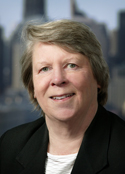 Diane E. Griffin
Diane E. GriffinJohns Hopkins Bloomberg School of Public Health
The immune response and clearance of acute viral infections
AAI Committee on the Status of Women Chair Virginia Shapiro and Immediate Past FASEB President Margaret K. Offermann will introduce the awardee and present the award immediately prior to Dr. Griffin's lecture.
The FASEB Excellence in Science Award is given in recognition of outstanding achievement by women in biological science. Recipients have furthered progress in a particular discipline through excellence in research.
Secrets for a Successful Postdoctoral Fellowship
Monday, May 11, 11:00 AM – 12:00 PM, Room 210
Speaker:
James Gould, Director, Office for Postdoctoral Fellows, Harvard Medical School
A postdoctoral fellowship is the time to develop research skills you will need to succeed as an independent scientist. It is, however, just as important to realize that you need to prepare for a career path at the same time. This session will highlight ways of getting the most out of your postdoctoral fellowship, relating successfully with your mentor, and understanding how to use the resources available to you to ensure that your training prepares you adequately for a seamless transition into the next phase of your career.
AAI Minority Affairs Committee
AAI Vanguard Lecture
Monday, May 11, 11:30 AM – 12:30 PM, Room 208-209
Supported in part by a grant to the Federation of American Societies for Experimental Biology (FASEB) from the National Institute of General Medical Sciences (NIGMS), National Institutes of Health [FASEB MARC Program: T36-GM08059-32]
Cherié L. Butts, Biogen-Idec; AAI Minority Affairs Committee Chair
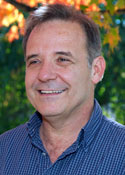 Speaker:
Speaker:
Gabriel Núñez, University of Michigan, Linking pathogen virulence, immunity, and the microbiota
Since 2003, the AAI meeting has featured a scientific lecture presented by an AAI member who is an underrepresented minority investigator. Selected for their achievements in the field of immunology, presenters are among the most prominent investigators in the field and models of successful career development.
AAI Excellence in Mentoring Award Presentation
Chair:
Linda A. Sherman, Scripps Research Institute, AAI President
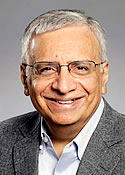 Rafi Ahmed
Rafi AhmedEmory University School of Medicine
AAI President Linda A. Sherman will introduce the awardee and present the award prior to the start of the President's Symposium.
The AAI Excellence in Mentoring Award recognizes exemplary career contributions to a future generation of scientists.
AAI President's Symposium
Partners in Crime and T Cell Sleuths
Monday, May 11, 12:30 – 2:30 PM
Ernest N. Morial Convention Center, Great Hall A
William R. Heath, University of Melbourne, Tissue-resident memory in viral and parasite immunity
Linda S. Wicker, University of Cambridge, From autoimmune disease genetics to immune-based therapies
Charles D. Surh, Academy of Immunology and Microbiology, Institute for Basic Science, Pohang, Korea, Regulation of immune homeostasis to commensal bacterial and dietary antigens
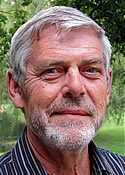
Matthew F. Mescher
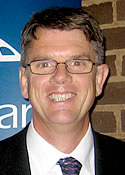
William R. Heath
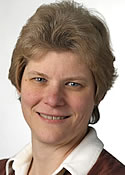
Linda S. Wicker

Charles D. Surh
Interviewing for a Job
Monday, May 11, 1:30 PM – 2:30 PM, Room 210
Speaker:
Derek Haseltine, Director, Career Services, College of Professional Studies, George Washington University
This session will be focused on tips and techniques to help you successfully navigate the interview process. Emphasis will be on how you can present yourself in the best possible light. You will also learn how to respond to unexpected questions. This session is open to anyone but is especially intended for student and postdoctoral attendees.
AAI Clinical Immunology Committee
Translational Research Towards Awakening the Immune System in Human Disease
Monday, May 11, 3:45 PM – 5:45 PM, Room R04-R05
Robert L. Modlin, UCLA
Angela Colmone, Science Translational Medicine, AAAS
Alan Sher, NIAID, NIH, A host-directed therapy for TB infection that targets innate cytokines
Hana Golding, CBER FDA, Novel methods for measuring antibody affinity, epitope diversity, and cross-reactivity in human vaccine trials
Drew M. Pardoll, Johns Hopkins School of Medicine, Therapeutic manipulation of the microenvironment of cancer
Jeffrey A. Bluestone, University of California, San Francisco, Rebalancing the immune system through Treg biology
Angela Colmone, Science Translational Medicine, AAAS, Translational immunology research: into the future
Advances in translational immunology research have led to new approaches to awaken the immune system in the battle against infection, cancer, and autoimmune disease. This session will include discussion of present approaches and future directions that will be valuable to immunologists interested in translational research.
German Society for Immunology (DGfI) Symposium
Control of Treg/Th17 Differentiation
Monday, May 11, 3:45 PM – 5:45 PM, Room 208-209
Hans-Martin Jäck, University of Erlangen
Dieter Kabelitz, University of Kiel
Carsten Watzl, Leibniz Research Center, Dortmund
Jürgen Wienands, University of Göttingen, Immunology in Germany
Tim Sparwasser, University of Hannover, Metabolic influences that regulate CD4 T cell function
Vigo Heissmeyer, University of Munich, Post-transcriptional control of Th17 differentiation
Petra Hoffmann, University of Regensburg, Impact of Treg cell plasticity on adoptive cell therapies
Jochen Hühn, Helmholtz Society, Braunschweig, Epigenetic control of regulatory T cell development
Michael Lohoff, University of Marburg, The role of interferon regulatory factors for T cell subset differentiation
AAI-Thermo Fisher Meritorious Career Award Presentation and Lecture
Monday, May 11, 4:30 PM – 5:30 PM, Great Hall A
Chair:
Linda A. Sherman, Scripps Research Institute, AAI President
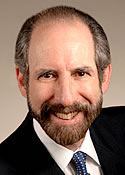 Ronald N. Germain
Ronald N. GermainNational Institute of Allergy and Infectious Diseases, National Institutes of Health
Developing a quantitative spatiotemporal understanding of immunity using imaging and systems biology
AAI President Linda A. Sherman and a representative of Thermo Fisher Scientific will introduce the awardee and present the award immediately prior to Dr. Germain's lecture.
The AAI-Thermo Fisher Meritorious Career Award recognizes a mid-career scientist for outstanding research contributions to the field of immunology.
Distinguished Lecture
Monday, May 11, 6:00 PM, Great Hall A
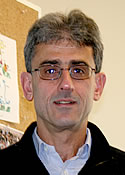
Albert S. Bendelac
University of Chicago
Innate and innate-like lymphocytes
IMMUNOLOGY 2015™ Gala: Lagniappe* on the Levee—The Tastes & Tunes of New Orleans
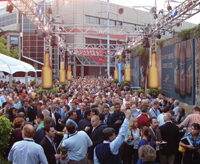
Generously sponsored by BioLegend
Monday, May 11, 2015, 7:00 PM – 9:30 PM
The Sugar Mill
1021 Convention Center Blvd.
New Orleans, LA 70130
Pause during your week of intense science to enjoy an evening with friends and colleagues at the AAI Gala: Lagniappe on the Levee—The Tastes and Tunes of New Orleans. At this festive event to be held at the historic Sugar Mill directly across from the Convention Center, you'll enjoy sampling the ambience and cuisines of three distinctive New Orleans neighborhoods—the Vieux Carré, the Garden District, and Cajun Bayou Country. You'll also be treated to the tunes of the 14-piece Swingaroux Band performing the many different genres of Louisiana music. And when you aren't dancing, you'll find lagniappe in novelty entertainment.
*Lagniappe: a Creole expression pronounced [lay-nee-ap] and meaning "a little something extra"
 HOME
HOME


 Show Full Program
Show Full Program Collapse Program
Collapse Program